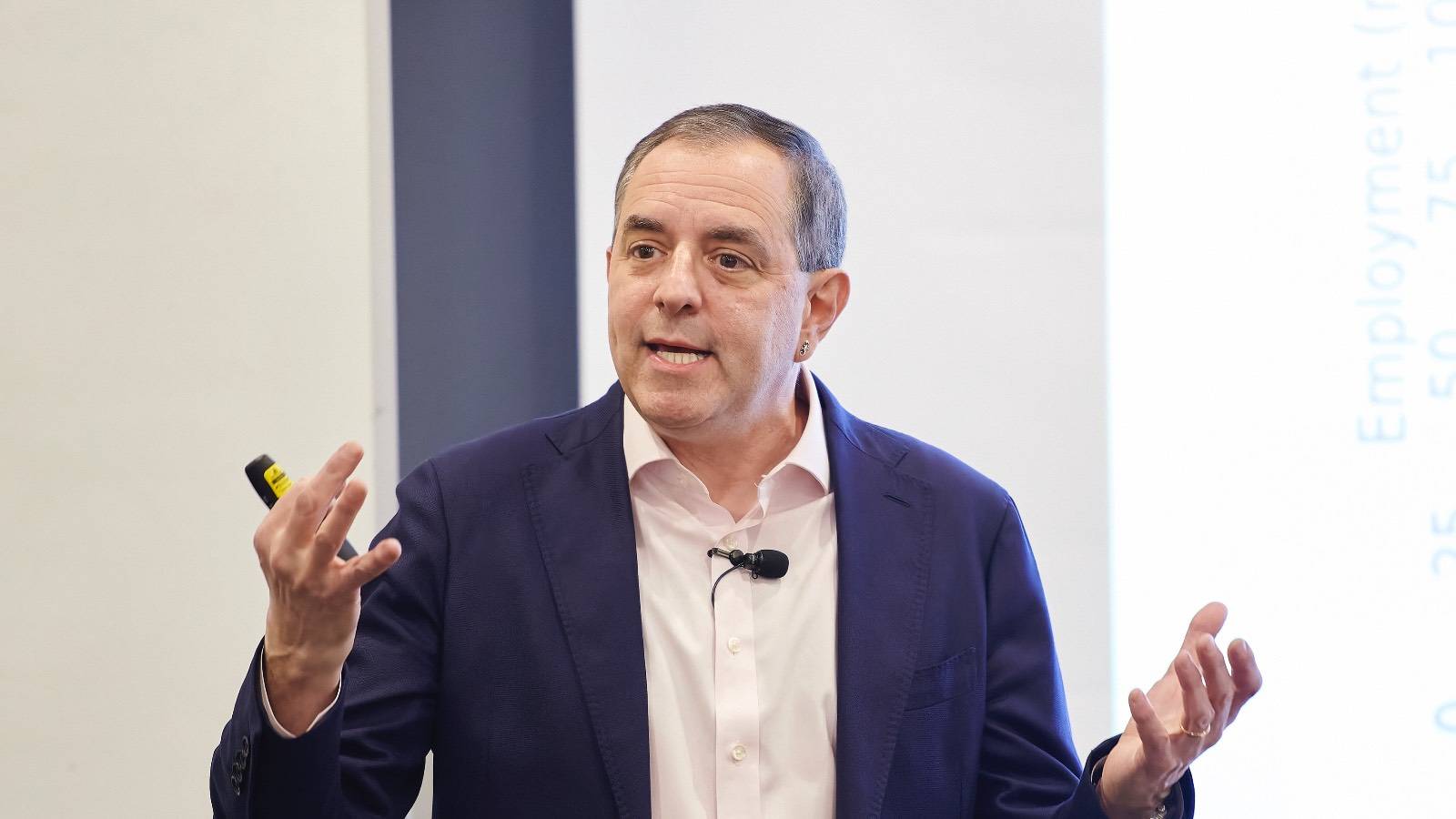David Autor, Ford Professor in the MIT Department of Economics, believes in a hopeful future for workers in the era of artificial intelligence, despite widespread fears of how the new technology will change the labor market. During a lecture and discussion sponsored by the Lampert Institute on Nov. 16, 2023, he outlined how AI is already being used to enhance expertise in many fields and how that could change how we view work in the years to come.
Autor agrees AI is a “big deal,” but what makes it different is its ability to break the rules of what we traditionally think of as accomplishing routine tasks, how it can perform creative tasks, and “discover and invent stuff on its own.” The emergence of AI has raised the question of how it will impact the value of human expertise going forward, Autor says, making some types of expertise more or less valuable, while others may be eliminated.
“Many tools, and AI is a tool, augment the value of human expertise,” Autor says, noting that many tools are so central to the work that people do it would be unthinkable to perform many jobs without them.
“The tools are a part and parcel of our expertise. They shorten the distance between intention and action, they augment our senses, and they allow us to do things we simply couldn’t do without them. Knowing how to use these tools makes us more valuable,” he says. “Often, expertise in using a tool is exactly the skill you’re selling to a market.”
Autor said the promise of AI is that it could enable people to go further with a given amount of expertise, to get more done, and to accomplish a broader set of more valuable tasks by getting tools that channel that expertise effectively. The economic risk is AI also makes that expertise much cheaper, he says, which may not be good for everyone. It also has the potential to create more competition between those with high levels of expertise and those with less expertise.
Despite fears that AI will create a situation where we “run out of jobs,” Autor says the actual concern is not a shortage of jobs, but rather a shortage of young, able-bodied people to do those jobs, especially in rich countries facing issues with low fertility, immigration restrictions, and a large “baby boom overhang.” He says the question is whether AI will be used to create more expert jobs, allowing expertise to go further, or if it will be used to commoditize labor, devalue expertise, and displace workers.
“Both of those are feasible, and you don’t have to look to some dystopian future to imagine it. You can just look at the last 40 years, where computerization has led to so much hollowing out of the workforce,” Autor says, noting AI is not all good or bad, but is a design choice and an R&D opportunity. “I strongly believe that industry, the government, universities, and trade unions can actually shape this future we’ll be working in. We should not ask what AI will do to us, but what we want it to do for us.”
A full recording of this lecture, including a question and answer session with the audience, may be viewed here. For more information on upcoming Lampert Institute events, subscribe to the Lampert Institute newsletter.
David Autor is Ford Professor in the MIT Department of Economics. His scholarship explores the labor-market impacts of technological change and globalization on job polarization, skill demands, earnings levels and inequality, and electoral outcomes.
Autor has received numerous awards for both his scholarship — the National Science Foundation CAREER Award, an Alfred P. Sloan Foundation Fellowship, the Sherwin Rosen Prize for outstanding contributions in the field of labor economics, the Andrew Carnegie Fellowship — and for his teaching, including the MIT MacVicar Faculty Fellowship.
In 2017, Autor was recognized by Bloomberg as one of the 50 people who defined global business. In March 2019, he was christened "Twerpy MIT Economist, David Autor" by John Oliver, host of Last Week Tonight, during a segment on automation and employment.
